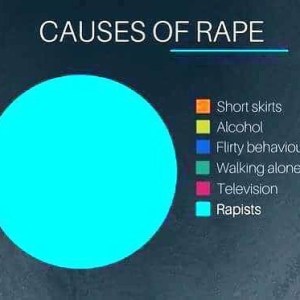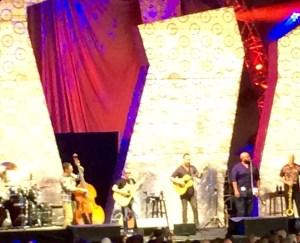Let’s say you read the following article in the paper:
Yesterday Sulyane Smith was driving home from work on
Hwy 64, when a drunk driver crossed the median and
slammed into her car. The police have been able to
determine that she was on no illegal substances, doing
the speed limit, and driving in the far right lane.
Ms. Smith, age 26, was huge Earth, Wind & Fire
fan and was listening to "September" when the oncoming
vehicle hit her. Doctors at the local hospital say
that she will likely be paralyzed for life.
I’m guessing your responses would range somewhere from:
“Oh God, that’s terrible!”
to
“I hate drunk drivers! Is the guy who hit her still alive?”
Which are all, I think, really reasonable responses and indicate that you’re a compassionate person and you think young Sulyane was the victim of an *awful*, terrible, crime.
I’m guessing that no one…not a single one of you…would say:
“Had she taken a defensive driving course?”
“Didn’t she swerve to avoid him”
“If she hadn’t been listening to music this wouldn’t have happened!”
or
“Didn’t she see him coming?”
Because we don’t tend to blame the people who are hit by drunk drivers for not being *better drivers* or not being able to anticipate and avoid the situation.
Yet, that’s exactly what we do to rape victims.
 So when this graphic started making the rounds on Facebook (and I reposted it because I think blaming the victim for being raped is rediculous) it provoked some interesting discussions amongst my friends.
So when this graphic started making the rounds on Facebook (and I reposted it because I think blaming the victim for being raped is rediculous) it provoked some interesting discussions amongst my friends.
One friend said that she too does not believe the victim is ever at fault, but said “there are things you can do to lower your risk of being raped.” She continued by asking: “What would you tell your daughter?”
As in, wouldn’t you tell your daughter that wearing short skirts or walking around alone at night is more likely to put you in danger of being raped.
Ugh. I mean, yeah. I would, if I had one. Just like I don’t walk through dark, abandoned parking lots in a late at night by myself if I can avoid it.
And yet, I still Very Much Agree with the graphic. And I realize I can mostly reconcile those two things by the word “cause,” as in “correlation does not imply causation;” however, I still have troubles with that, because as a woman, anyone making a statement about what women should or shouldn’t do to lower their risk of being raped still *feels like* it puts the impetus for not being raped on me.
And I tend to figure things out by analogy (working through similar situations and finding out where the math doesn’t work anymore), so last night as I was not sleeping while worrying through this I came up with the drunk driver analogy.
We don’t blame the victims of drunk drivers for
- not having taken defensive driving class
- not being better drivers (and being able to swerve to avoid being hit)
- listening to the radio or
- not seeing the driver coming
…even though there’s a decent chance they could have avoided being hit if any (or all) of those things were true.
Think about the last time you took extreme measures while driving to avoid someone who did something bat-shit-crazy and nearly hit you.
That person could have been drunk. And if they had been drunk and they had hit you, No One Would Ever say that “You could have avoided this, if only…”
We don’t blame the victims of drunk drivers.
And that’s the difference. Because we never blame drunk drivers, it’s totally cool to say “Hey, defensive driving class is a thing you should do — you can never tell what kind of drunken idiots will be on the road.”
But saying “Hey, dressing conservatively and not drinking are things you should do, because you never can tell what kind of vicious rapists are out there,” is not.
…
…
…
I *know* this isn’t a black-and-white situation. It’s shades of grey, like everything else. But the kind of thinking that tells women to not wear skimpy clothing (so men don’t want to rape them) leads straight to women being clothed head-to-toe with no skin showing at all.
(BTW, I would *love* to see statistics that correlate % of women who are raped with % of their body covered by fabric. I am guessing that if you look back through history and across cultures, you’d find that there’s no correlation at all between amount of skin and incidence of rape. I don’t have the metrics to back up or refute this, but please holler if you do.)


